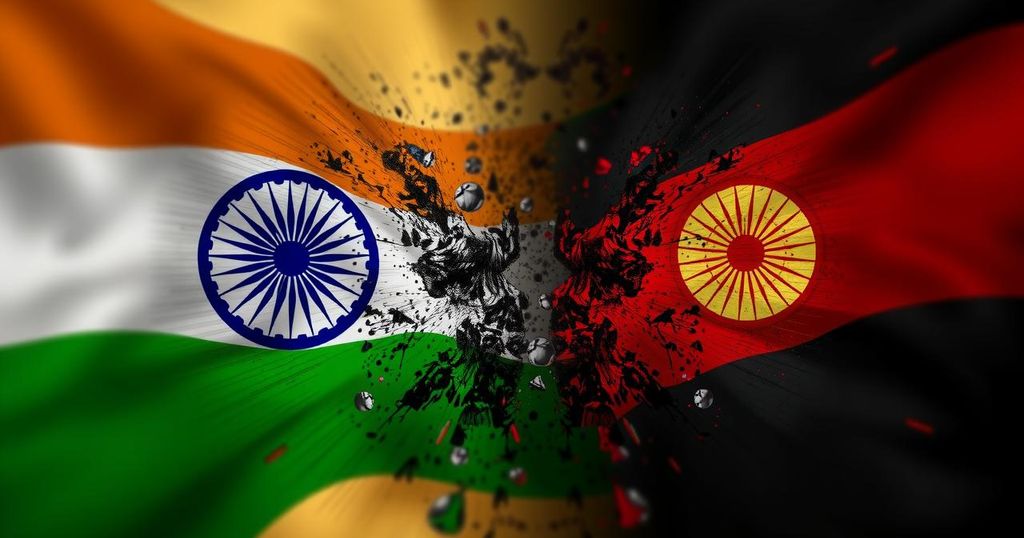India-Bangladesh Relations Deteriorate Amid Rising Tensions Over Hindu Minority Violence
Rising tensions between India and Bangladesh result from allegations of violence against Hindus in Bangladesh, causing diplomatic strain after the recent fall of Prime Minister Sheikh Hasina. The new interim government’s relationship with India is challenged as accusations surface regarding India’s role in exacerbating these claims for political ends. Violent protests in response to the situation have further complicated matters, necessitating urgent dialogue between both nations.
The escalating tensions between India and Bangladesh stem from allegations regarding attacks on Bangladesh’s Hindu minority, leading to widespread protests and a violent assault on a Bangladeshi consulate in India. These relations have deteriorated following the ousting of Prime Minister Sheikh Hasina in a mass uprising last August, which India initially supported. Hasina’s departure has created a diplomatic rift as the new interim government, led by economist Muhammad Yunus, seeks to redefine relations with India, aiming for a detachment from the former regime’s approach.
Controversies have arisen from widespread claims of violence against Hindus in Bangladesh, which the Bangladesh government attributes to exaggerations by India for political leverage. Yunus criticized these accusations, stating that they serve to undermine efforts to stabilize Bangladesh post-Hasina. The political landscape has been further destabilized by the arrest of a Hindu monk under provocative circumstances, igniting protests that culminated in violence towards Bangladeshi officials.
Protest actions in India have intensified, with thousands participating in demonstrations, leading to an attack on the Bangladeshi consulate in Tripura. The Indian government condemned this violence, increasing security measures at Bangladeshi diplomatic sites. Conversely, Bangladesh has accused India of spreading misinformation to destabilize the current caretaker government, resonating with a long history of Hindu minority persecution under prior regimes, which were somewhat curbed by Hasina. Reports of violence are debated among analysts in Dhaka, reflecting the dire need for a stable governance approach to resolve these complex issues.
In summary, the intricate dynamics between India and Bangladesh have heightened following political upheaval and claims of religious violence, thus complicating diplomatic relations. Both governments are urged to engage in constructive dialogue to address the issues at hand efficiently and peacefully, while maintaining respect for minority rights.
The crux of the deterioration in India-Bangladesh relations is rooted in the political collapse of Sheikh Hasina’s government amid allegations of religious violence against the Hindu minority in Bangladesh. Previously, Hasina’s regime was allied with India, leveraging diplomatic ties for strategic benefits. With her ousting and the rise of an interim government, accusations have surfaced regarding the misrepresentation of the situation by Indian authorities, particularly concerning Hindu safety in Bangladesh, thereby signaling a significant shift in regional diplomacy as each country grapples with internal strife and external perceptions.
The tensions between India and Bangladesh illustrate the complex interdependence of political and social factors that can influence diplomatic relations. Allegations of ethnic and religious violence complicate efforts toward peace, while the change in leadership in Bangladesh necessitates careful management of both domestic and foreign relations. A commitment to open dialogue and factual representations is imperative for both nations to navigate their current challenges and restore stability.
Original Source: www.theguardian.com








Post Comment